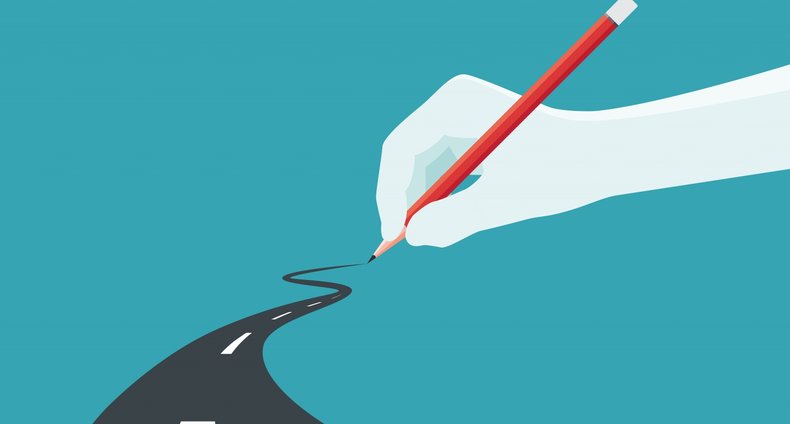
100 Tips For Remembering Information Better in College
As a college student, it can be overwhelming to keep track of all the information you need to learn and remember. From lectures and readings to exams and assignments, there's a lot to juggle.
Fortunately, there are many techniques and strategies you can use to improve your memory and retention. In this guide, we will share 42 tips for remembering things better in college.
These tips range from simple lifestyle changes, like getting enough sleep and staying hydrated, to more complex memory techniques, like using the memory palace or Feynman Technique.
By incorporating these tips into your study routine, you can enhance your ability to remember and recall information, ultimately helping you succeed in your academic pursuits.
1. Prioritize Sleep to Improve Memory Consolidation
Getting enough sleep is crucial for memory consolidation, the process of solidifying information into long-term memory. Sleep allows the brain to process and organize information, so make sure you are getting enough sleep each night to help retain what you have learned.
2. Be Present and Pay Attention when Learning
When learning new information, be fully present and attentive to what you are studying. Distractions can hinder memory retention, so eliminate any distractions and focus solely on the material you are trying to learn.
3. Use Mnemonic Devices to Aid Memory
Mnemonic devices, such as acronyms or visualization techniques, can help you remember information by creating mental associations between the new material and something familiar. Use these techniques to help you retain new information.
4. Break Information into Manageable Chunks
Breaking up new information into smaller, more manageable chunks can make it easier to digest and remember. Try breaking down complex concepts into smaller pieces, focusing on one piece at a time before moving on to the next.
5. Practice Active Recall
Try to recall new information without looking at your notes to help reinforce it in your memory. This practice, known as active recall, can improve retention and make it easier to recall information in the future.
6. Use Repetition to Reinforce Learning
Repeating information helps to reinforce it in your memory. Practice repeating information multiple times to help it stick.
7. Teach Someone Else to Solidify Your Own Learning
Teaching someone else what you have learned is a great way to solidify the information in your own mind. When you teach, you must process and explain the information, which can help you retain it more effectively.
8. Create Mental Associations between Old and New Information
Creating mental associations between new information and things you already know can help you retain the new information. Make connections between the new information and something you already know to help solidify it in your memory.
9. Use the Method of Loci to Remember Series of Information
The method of loci, also known as the memory palace technique, involves mentally placing information in a familiar place to help remember it. Use this technique to remember a series of information, such as a list of items.
10. Write Things Down to Help Remember
Writing things down can help reinforce information in your memory. Take notes, write summaries, or create flashcards to help solidify new information.
11. Use Flashcards for Quizzing Yourself
Flashcards are a great tool for quizzing yourself on information you want to remember. Use them to practice retrieval and reinforce the information in your memory
12. Create a Routine or System for Remembering Important Information
Creating a routine or system for remembering important information can help you retain it more effectively. Use a specific method or strategy consistently to help reinforce the information in your memory.
13. Use Color-Coding or Highlighting to Visually Distinguish Important Information
Using color-coding or highlighting can help you visually distinguish important information, making it easier to remember. Use this technique to draw attention to key points or concepts.
14. Practice Deep Breathing and Mindfulness to Reduce Stress and Improve Focus
Deep breathing exercises and mindfulness meditation can help reduce stress and improve focus, making it easier to retain new information. Practice these techniques regularly to improve your memory retention.
15. Use Music or Background Noise to Create a Conducive Learning Environment
Using music or other background noise can help create an environment conducive to learning. Experiment with different sounds and find what works best for you.
16. Use Visualization Techniques to Create Mental Images
Visualization techniques can help you create mental images that aid in memory retention. Use this technique to create visual cues that help you remember complex or abstract concepts.
17. Create mental associations between new information and things you already know
One effective way to improve your memory is to connect new information to things you already know. This helps to create mental associations between the new information and the information already stored in your long-term memory. By doing this, you can better remember and recall the new information when needed.
18. Write things down to reinforce your memory
Writing down information can help to reinforce it in your memory. Whether you take handwritten notes or use digital tools, the act of writing can help to solidify information in your mind and make it easier to remember later.
19. Create a routine or system for remembering important information
Creating a routine or system for remembering important information can help to ensure that you don't forget it. This could involve setting reminders, using specific note-taking techniques, or creating mnemonic devices to aid in recall.
20. Stay hydrated to improve brain function and memory
Drinking enough water throughout the day is important for maintaining good brain function and memory. Studies have shown that even mild dehydration can impair cognitive function, including memory, attention, and reaction time. To stay hydrated, aim to drink at least 8 glasses of water per day.
21. Use sensory cues such as scent or touch to reinforce memory
Sensory cues such as scent or touch can help reinforce memory by providing additional cues to help trigger recall. For example, you could associate a particular scent with a particular event or experience to help you remember it more vividly.
22. Use storytelling or narrative structures to make information more memorable
Storytelling or narrative structures can help make information more memorable by placing it in a meaningful context. For example, you could create a story or narrative that ties together the different pieces of information you want to remember.
23. Use context cues to help you remember information in specific situations
Context cues involve using environmental or situational cues to help trigger recall. For example, if you are trying to remember a grocery list, you could visualize yourself walking through the grocery store and associating each item on the list with a particular aisle or section.
24. Create a personal connection to the information you want to remember
Creating a personal connection to the information you want to remember can help make it more meaningful and memorable. For example, if you are learning about a particular historical event, you could try to relate it to your own personal experiences or interests.
25. Use humor or playful activities to make information more memorable
Using humor or playful activities can help make information more memorable by engaging your brain in a fun and enjoyable way. For example, you could create a funny mnemonic device to help you remember a list of items or use a game or puzzle to help reinforce learning.
26. Teach the material to someone else
When you teach someone else, you have to engage with the material on a deeper level, which can help reinforce your memory of the information.
27. Use positive self-talk
When you're studying, use positive affirmations to boost your confidence and remind yourself that you can do this
28. Use mindfulness techniques
Practice mindfulness meditation or deep breathing exercises to help reduce stress and improve focus, which can help you retain information better.
29. Practice active listening during lectures and discussions to help retain information
- Take notes while listening to help you retain the information
- Ask questions to clarify any confusing or unclear points
- Participate in class discussions to engage with the material
- Summarize the main points at the end of each lecture to reinforce your memory of the information
30. Use mnemonics, such as acronyms or rhymes, to help remember lists or sequences of information
- Create acronyms or phrases using the first letter of each item in a list to help remember the items in order
- Use rhyming words or phrases to help remember information that needs to be memorized in a specific sequence
31. Take breaks during studying to allow time for memory consolidation and avoid burnout
- Take short breaks every 30-45 minutes to allow your brain to rest and consolidate the information you have learned
- Use break time to engage in physical activity or relaxation techniques to help reduce stress and improve focus
32. Prioritize sleep to improve memory consolidation and retention
- Aim for 7-9 hours of sleep each night to allow your brain to consolidate information learned during the day
- Avoid all-nighters as they can impair memory retention and recall
33. Use self-testing or practice quizzes to reinforce memory of material
- Take advantage of study guides, quizzes, or practice exams provided by your professors to test your knowledge and reinforce memory of the material
- Create your own practice questions and quizzes to test your knowledge and memory of the material
34. Try teaching the material to someone else to solidify your own understanding and retention
- Explain the material to a friend or study partner to reinforce your own understanding and retention of the information
- Prepare a presentation or teaching materials to help you organize the information and solidify your understanding
35. Engage in regular physical activity to promote brain health and memory function
- Engage in regular aerobic exercise to promote blood flow and oxygenation to the brain
- Consider incorporating mind-body exercises such as yoga or tai chi to help reduce stress and improve focus
36. Utilize a variety of study methods and techniques to keep information fresh and engaging
- Use a variety of study materials such as textbooks, lecture notes, videos, and online resources to keep the information fresh and engaging
- Experiment with different study techniques such as flashcards, mind maps, or group study sessions to find what works best for you
37. Limit distractions while studying to maintain focus and retention
- Find a quiet study space free from distractions such as social media, TV, or other electronic devices
- Use focus-boosting tools such as noise-cancelling headphones or ambient noise generators to help block out distractions
38. Use positive reinforcement, such as rewarding yourself after a successful study session, to motivate and strengthen memory
- Set achievable goals for each study session and reward yourself when you meet them
- Celebrate small successes along the way to help maintain motivation and improve memory retention
39. Get enough vitamin B12 in your diet or consider taking a supplement, as it can help improve memory function
- Vitamin B12 is an essential nutrient that plays a key role in brain function and memory. It is necessary for the production of red blood cells, DNA synthesis, and the proper functioning of the nervous system. Low levels of vitamin B12 can lead to neurological symptoms, such as memory loss, confusion, and difficulty concentrating.
- One of the best sources of vitamin B12 is animal-based foods, such as meat, fish, eggs, and dairy products. However, for those following a vegetarian or vegan diet, getting enough vitamin B12 can be a challenge. In such cases, it may be necessary to consider taking a vitamin B12 supplement.
- Studies have shown that vitamin B12 supplementation can help improve memory function and prevent cognitive decline, particularly in older adults. In fact, low levels of vitamin B12 have been linked to an increased risk of dementia and Alzheimer's disease.
- When taking a vitamin B12 supplement, it is important to follow the recommended dosage and speak with a healthcare professional beforehand. It is also important to note that while vitamin B12 supplementation can be beneficial for memory function, it is not a magic solution and should be combined with other memory-enhancing strategies for best results.
40. Make sure to get enough natural light and fresh air to promote brain function and alertness
- Getting enough natural light and fresh air is essential for optimal brain function and alertness. Research has shown that exposure to natural light helps regulate the body's internal clock, which can improve sleep patterns and cognitive function.
- Sunlight also triggers the release of serotonin, a neurotransmitter that regulates mood and helps improve focus and concentration.
- Fresh air is also important for brain function as it helps improve oxygenation in the body, including the brain.
- Adequate oxygenation is essential for optimal brain function, as the brain requires a significant amount of oxygen to function properly. In fact, the brain accounts for approximately 20% of the body's oxygen consumption.
41. Use the method of association to link new information to something you already know
- The method of association, also known as associative learning, involves linking new information to something already familiar in order to improve retention and recall. This technique takes advantage of the brain's natural ability to connect and associate related ideas and concepts.
- One way to use association is to use visual imagery to create a mental picture that connects the new information with something you already know. For example, if you're trying to remember the name of a new colleague named "Jessica," you might associate her name with the actress Jessica Alba, creating a mental image of your colleague with Alba's face.
42. Utilize the power of emotion to make information more memorable, such as associating it with a personal experience or strong feeling
- Emotion is a powerful tool when it comes to memory retention. Our brains are wired to prioritize information that is relevant to our survival, and emotions play a big role in determining what is important to us.
- When we experience a strong emotion, whether positive or negative, our brains release neurotransmitters that help to strengthen the connections between neurons, making the associated memory more vivid and easier to recall later on.
- To utilize the power of emotion to make information more memorable, try to associate the new information with a personal experience or strong feeling.
- For example, if you are trying to remember a list of vocabulary words for a language class, try to create a personal story or scenario that involves the words. This could be a conversation with a friend, a funny situation, or a memorable trip you took
Summary
From active listening and self-testing to utilizing technology tools and practicing stress-reduction techniques, there is a lot of effective strategies available. By incorporating these tips into their study routines, students can achieve their academic goals and thrive in their college careers.
Remember, everyone's brain works differently, so it's important to experiment with different techniques to find what works best for you. With dedication and practice, anyone can improve their memory function and excel in their college studies.





